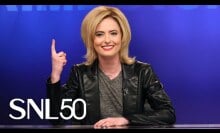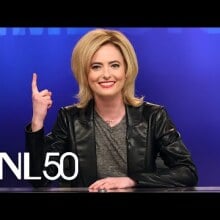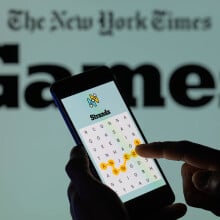Americans increasingly get their news from online influencers, and a new study found those creators are predominantly men and more likely to be conservative.
Pew released a detailed study on Monday that examined news influencers in America. Among the key takeaways was that 21 percent of U.S. adults — and 37 percent of those under the age of 30 — said they regularly got their news from social media influencers. Overall, the study found that news influencers were majority men and more likely to be conservative.
The Pew study found that 63 percent of news influencers — a significant majority — were men. When it came to politics, meanwhile, 27 percent were right-leaning, compared with 21 percent who identified as left-leaning. Forty-eight percent, meanwhile, had "no clear orientation."
The fact that a plurality of news influencers identified as having no political orientation may be related to how Pew defined a news influencer. A news influencer was defined as: "[Individuals] who regularly post about current events and civic issues on social media and have at least 100,000 followers on any of Facebook, Instagram, TikTok, X (formerly Twitter) or YouTube. News influencers can be journalists who are or were affiliated with a news organization or independent content creators, but they must be people and not organizations."
Of the 500 popular news influencers included in the study, 23 percent were or had been employed in the news industry. Those current or former journalists proved much more likely to eschew explicit political bias. Most news influencers with no news background said they did lean one way or the other.
The more granular takeaways from the study were interesting as well. For instance, if Facebook seems more conservative, the study would agree. There were three times as many conservative influencers on the platform (39 percent) compared with liberal ones (13 percent). TikTok had the most equitable distribution of news influencers when it came to both politics and gender. Forty-five percent of news influencers on TikTok were women compared to 50 percent men. And 28 percent were liberal compared with 25 percent conservative.
The data from Pew seems to back the reporting and notion that there's a growing ecosystem of right-wing influencers. The 2024 election, after all, seemed to be, in part, proof of that idea.











